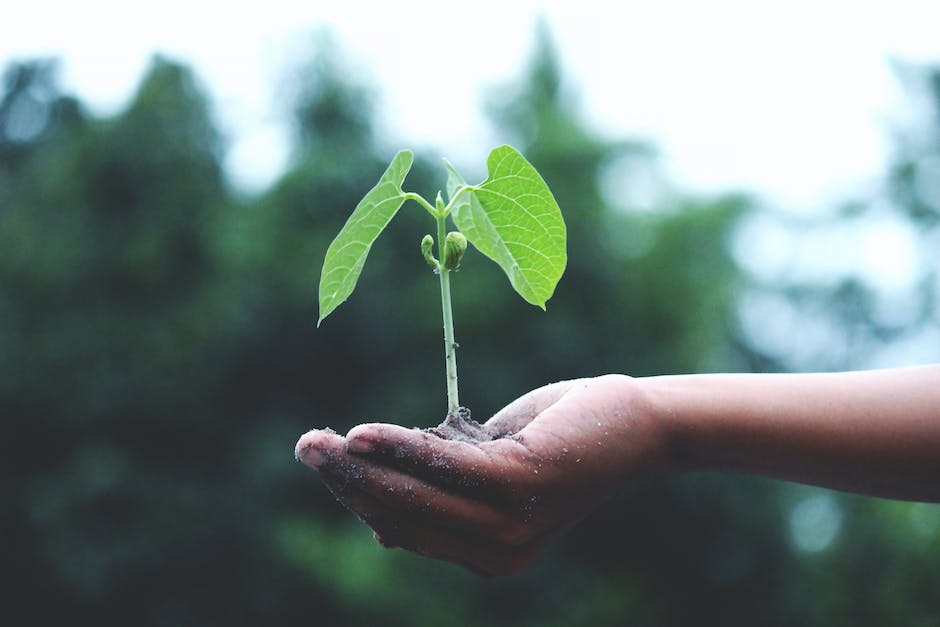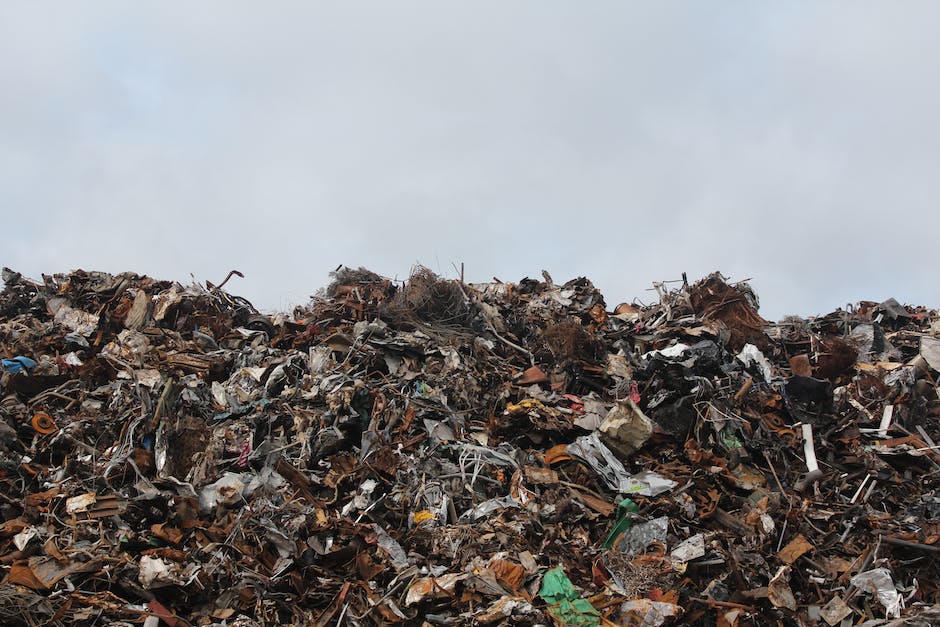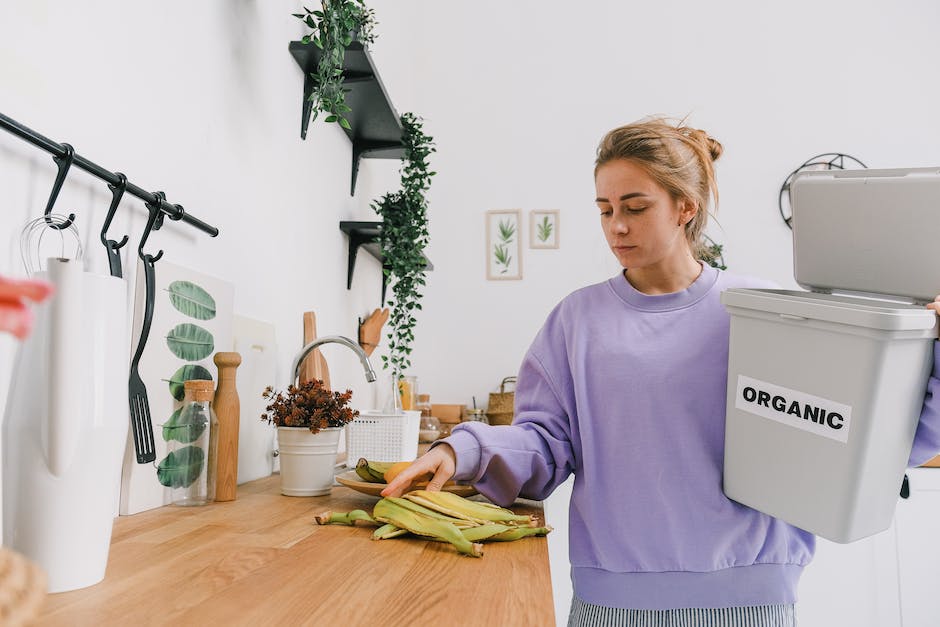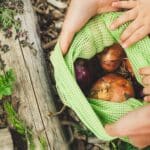Discover How Composting Can Lighten the Load on Your Wallet
Ever wondered how the age-old practice of composting might be a boon to your budget? How could transforming kitchen scraps into nutrient-filled compost save you some cash?
It’s crucial to know that when you compost, you’re essentially producing a natural, nutrient-rich soil conditioner right in your backyard. And composting isn’t just about helping your plants thrive. It also decreases your household waste. How much are you shelling out in trash bag costs and waste disposal fees?
When it comes down to the nitty-gritty, composting leads to healthier, more productive gardens. More homegrown produce equates to fewer trips to the grocery store.
Can you already feel your wallet getting heavier? We can, too.
So let’s jump in and learn how to make a greener world by saving greenbacks.

How can composting in my garden lead to budget savings?
The benefits of composting
Composting is a natural process that breaks down organic materials, such as kitchen scraps, yard waste, and newspaper, into a rich soil amendment known as compost.
This nutrient-rich compost acts as a fertilizer, improving soil structure, water retention, and overall plant health. However, the benefits of composting go beyond just providing a healthy growing environment for your plants.
1. Reduce purchasing of soil amendments
When you compost at home, you create a free and abundant supply of nutrient-rich soil amendment.
This means that you can significantly reduce the need to purchase expensive commercial fertilizers, compost, or topsoil from gardening centers. By making your own compost, you can save money in the long run and rely less on these external inputs.
2. Eliminate the cost of waste disposal
Did you know that a significant portion of household waste consists of kitchen scraps and yard trimmings?
By composting these organic materials instead of throwing them away, you can reduce the amount of waste you send to landfills. Many cities charge fees for waste disposal, either through taxes or by weight.
By composting, you can avoid these costs and potentially lower your overall waste management expenses.
3. Increase plant productivity and reduce plant diseases
Compost enriches the soil with essential nutrients and improves its structure, which, in turn, promotes healthy plant growth.
When plants are healthier, they are more resistant to pests and diseases. By using compost as a natural fertilizer, you may reduce the need for chemical pesticides and fungicides, saving money on pest management products.
How to get started with composting
Now that you understand the cost-saving benefits of composting, you may be wondering how to get started.
The good news is that composting is relatively easy and can be done in small spaces, even if you don’t have a traditional backyard.
- Collect kitchen scraps, like fruit and vegetable peels, coffee grounds, and eggshells.
- Gather yard waste, such as grass clippings, leaves, and small branches.
- Choose a composting method that suits your available space, such as a compost bin, worm bin, or compost pile.
- Layer the organic materials, ensuring a good balance of green (nitrogen-rich) and brown (carbon-rich) materials.
- Turn the compost regularly to aerate it and speed up the decomposition process.
- In a few months, your compost will be ready to use in your garden.

Unlocking the potential of Composting: A Comparative Analysis on Garden Yield and Budget Impact
Composting and Garden Yield
According to a study by the University of California, compost improves the soil structure, texture, and aeration.
By doing so, it helps in creating a healthier soil environment, which in turn enhances root development. And guess what happens when roots are happily housed and drawing nutrients from the soil?
That’s right! You’ll see a significant increase in your garden yield!
But how does this affect your budget?
Composting and Budget
You might be wondering, “Aren’t the costs of composting just going to creep up and impact my budget anyways?”
It’s a valid concern, but the beauty of composting is that it’s generally a low-cost affair. By using materials you typically throw away (think kitchen scraps, grass clippings), the only real cost involved is your time and effort.
A Tale of Two Gardens: Comparing Yields and Budget
Still unconvinced that composting can improve your garden’s yield and be budget-friendly? Let’s compare two hypothetical gardens, one that utilizes composting and one that doesn’t.
| Garden Type | Yield (Approximate) | Fertilizer & Soil Amendment Cost |
|---|---|---|
| Non-Composting | 60% | $50 |
| Composting | 90% | $10 |
As you can see, the garden that embraces composting shows a higher yield while costing a fraction of what the non-composting garden does! 
Cracking the Code: How Composting Can Save You Money on Waste Disposal
Understanding the Cost of Waste Disposal
Before we dive into the cost savings from composting, let’s first get a grasp on the typical cost of waste disposal.
Depending on where you live, you might be paying a monthly fee for curbside garbage pickup, or perhaps a cost per bag at the local dump. Either way, you’re putting your hard-earned money towards getting rid of stuff you no longer need.
A Look at Average Household Waste Production
Consider this: The average American generates around 4.9 pounds of trash per day[source].
It’s surprising, right? Now think of the chunk of it that’s organic waste: kitchen scraps, yard waste and so on. What if you could redirect much of this from the waste stream and save on disposal costs?
Quantifying Composting Cost Savings
So how do savings come into play?
Well, just think about this: the amount of waste you produce directly impacts your disposal costs. If you are paying per bag, every bag of waste you don’t produce means money saved. Even if you are paying a flat monthly fee, generating less waste can often move you into a lower cost bracket.
Making Sense of the Numbers
Let’s break it down.
Say, for instance, you’re able to compost about 30% of your waste (a fairly typical percentage for an average household). Using our previous stats, if we assume a cost per bag rate of $5, and each person produces about 4.9 pounds of waste per day (approximately half a bag), you could potentially save $2.50 per day per person.
Multiply that by the number of people in your household, then by 365, and you get your annual savings.
Additional Resources
Before we conclude, it’s important to note that composting is not a one-size-fits-all endeavor. For comprehensive guidance on composting best practices relevant to you, check out these authoritative resources:
- Composting at Home – U.S. Environmental Protection Agency
- Composting 101 – National Resources Defense Council
- Composting 101 – Planet Natural Research Center

The Undeniable Connection Between Composting and Lower Grocery Bills
Money-Saving Magic in Your Trash
Decreasing Commodity Purchasing
- First off, when you compost your kitchen scraps, you’re saying goodbye to kitchen trash bags sooner than you’d imagine. Interesting, isn’t it? You won’t need to hit the store any too soon for those.
- Secondly, ever heard about avoiding extra-spending on fresh produce? You can grow your own fruits and vegetables right at home with the help of compost, and guess what – you don’t even need to have a green thumb to do it.
The Magic of Organics
- Nature at work: Studies have found that compost-enriched soil naturally deters many types of pests and diseases, negating the need for synthetic treatments.
- Backup no more: Your homemade compost solution also means no more hefty bills for commercial soil treatment solutions.
The Power of Cutbacks
Subtracting Waste Management Costs
- Fewer trips to the dump: Reduced trash means fewer trips to the local dump or fewer garbage pick-up services needed. This directly translates to saved gas money and less pressure on waste management.
- Bye-bye, bulky bags: Lesser volume in your trash bag also means no need for heavy-duty garbage bags. Simpler, lighter, cheaper ones would suffice!

The Remarkable Link Between Composting and Lower Grocery Expenses
I’ll introduce you to a bit of an interesting wizardry you can create with your trash, believe it or not, it’s the magic of composting. Our kitchen trash could become a treasured resource if we’re just savvy enough to channel it correctly.
Reducing Commodity Purchases
Here’s how it works: Firstly, composting those everyday kitchen scraps means we’re ditching the kitchen trash bags earlier than expected, so no rush to the store for replacements. Moreover, did you ever think of skipping the additional spending on farm-fresh goodies? As compost allows us to cultivate our own fruits and vegetables, and the best part, no horticulture expertise needed.
The Enchantment of Organic Substances
Now let’s delve into Mother Nature’s magic: Research showcases that compost-rich soil naturally wards off various pests and diseases. Say goodbye to synthetic treatments and, consequently, farewell to pricey bills for commercial soil solutions.
The Potency of Pruning Expenses
Another dimension of composting is its ability to cut down on waste management expenses. Treating trash more mindfully results in fewer trips to the local dump, saving you fuel and easing the strain on waste management. Not only this, but the reduced trash volume negates the need for those more robust (and more costly) garbage bags. Cheaper, lightweight options will do the trick just as well.






